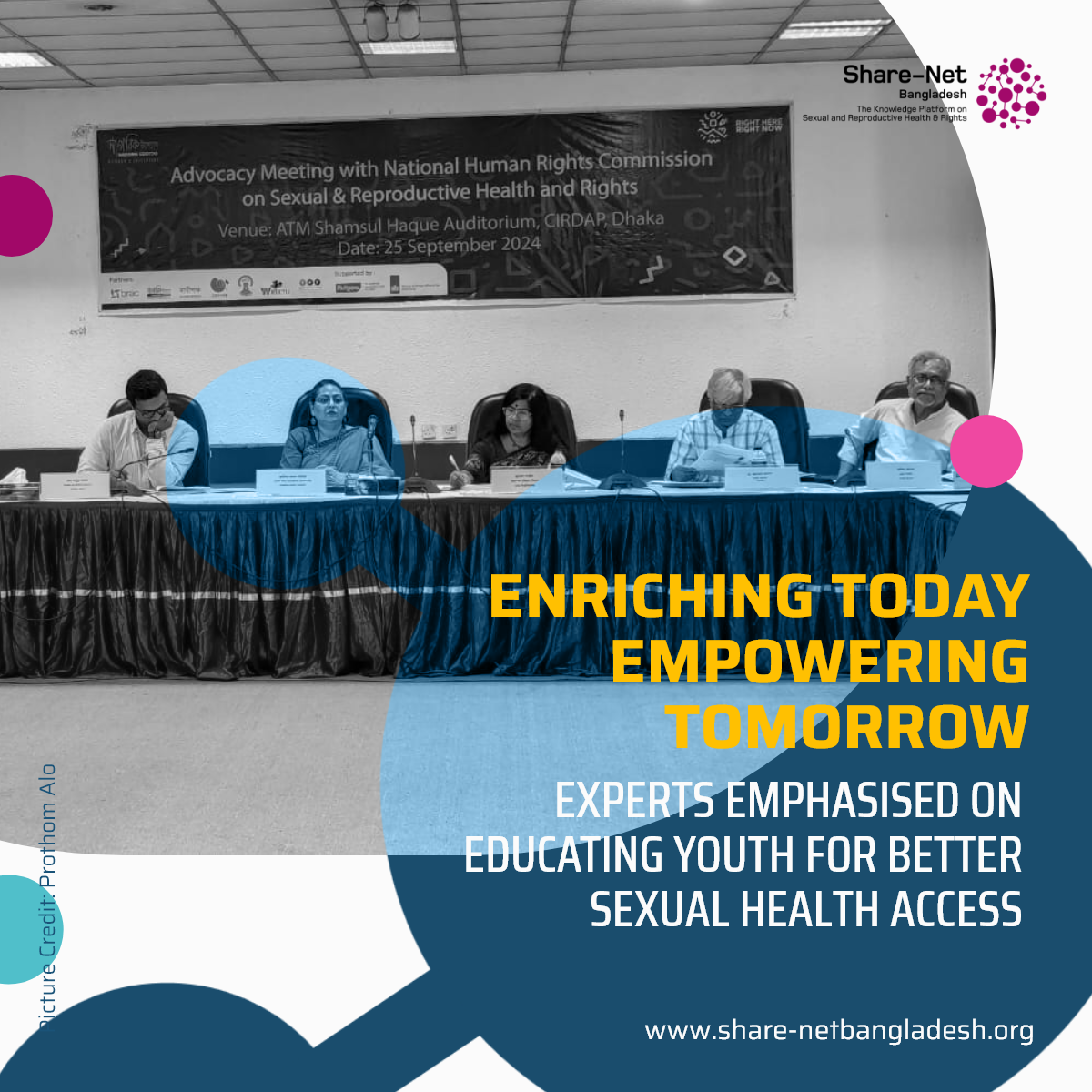Enriching Today-Empowering Tomorrow: Experts Emphasised on Educating Youth for Better Sexual Health Access
Experts from diverse sectors emphasised the urgent need for education to address deeply ingrained taboos surrounding youth sexual and reproductive health rights (SRHR) in Bangladesh. This call came during a recent discussion titled “Sexual and Reproductive Health and Rights of Youth,” hosted by Nagarik Uddyog in collaboration with the National Human Rights Commission (NHRC).
“We need to move beyond current biases against adolescent sexual health,” urged Prof. Zubaida Nasrin from Dhaka University. She highlighted that while there is increasing support for women’s sexual health, there is still limited assistance for adolescents, particularly those navigating the changes of puberty. “Families need to be more aware of these physical and emotional transitions,” she said, stressing the importance of family education in supporting young people’s health and well-being.
The session underscored a growing societal understanding of menstruation, though gaps remain, particularly in managing menstrual products during emergencies. Speakers also addressed the broader need for destigmatising sexual health issues across all youth demographics. Ms. Mushfiqua Zaman Satiar, senior policy adviser for the Netherlands Embassy, pointed out, “Access to sexual and reproductive health services is not just a need; it’s a basic human right.”
Child marriage was a prominent focus of the discussion, with many experts urging NHRC to enforce existing laws that protect young people from early marriage. Participants emphasised that child marriage is not only a human rights issue but a pressing public health concern that undermines young people’s physical and psychological development.
Neha Akhtar Sifat, a social activist, noted ongoing superstitions and cultural pressures in communities like Narayanganj’s Dalit population, where she argued that stronger government-backed awareness programs are essential. “Youth initiatives can only go so far; we need official support to dismantle these damaging superstitions,” she explained.
Shirin Akhtar, chairperson of the Women with Disability Development Foundation, further stressed the role of early education in sexual and reproductive health. She called for coordinated efforts between the NHRC and relevant ministries, proposing a national approach to reinforce SRHR education across schools and communities. “It’s not just a health issue; it’s a pathway to dignity and self-empowerment for youth,” she said.
The panel proposed practical solutions, including enhanced local educational campaigns, improved access to legal aid, and greater budget allocations for SRHR initiatives. An action plan led by the NHRC was also suggested to ensure stronger implementation of SRHR policies, particularly around child marriage prevention. Project Coordinator Masudur Rahman proposed that the NHRC engage more actively with educational institutions and community leaders to promote SRHR knowledge and foster safe environments for youth.
The discussion also highlighted menstrual health policies, including recommendations for free hygiene products for marginalised groups. With accessible menstrual health services still limited in many rural areas, experts agreed that NHRC should work closely with the Education Ministry to improve menstrual health policies and school hygiene facilities.
Addressing the stigma around SRHR, Zakir Hossain, chief executive of Nagarik Uddyog and moderator of the discussion, urged for stronger digital media engagement to make SRHR resources accessible at the grassroots level. He argued that digital resources and report accessibility could bring more youth voices into the conversation, breaking down barriers of stigma and misinformation.
As discussions continue, experts hope the NHRC will prioritise enforcing laws against child marriage, advocating for menstrual health policies, and expanding educational outreach.
Source: Dhaka Tribune
Picture Credit: Right Here Right Now

